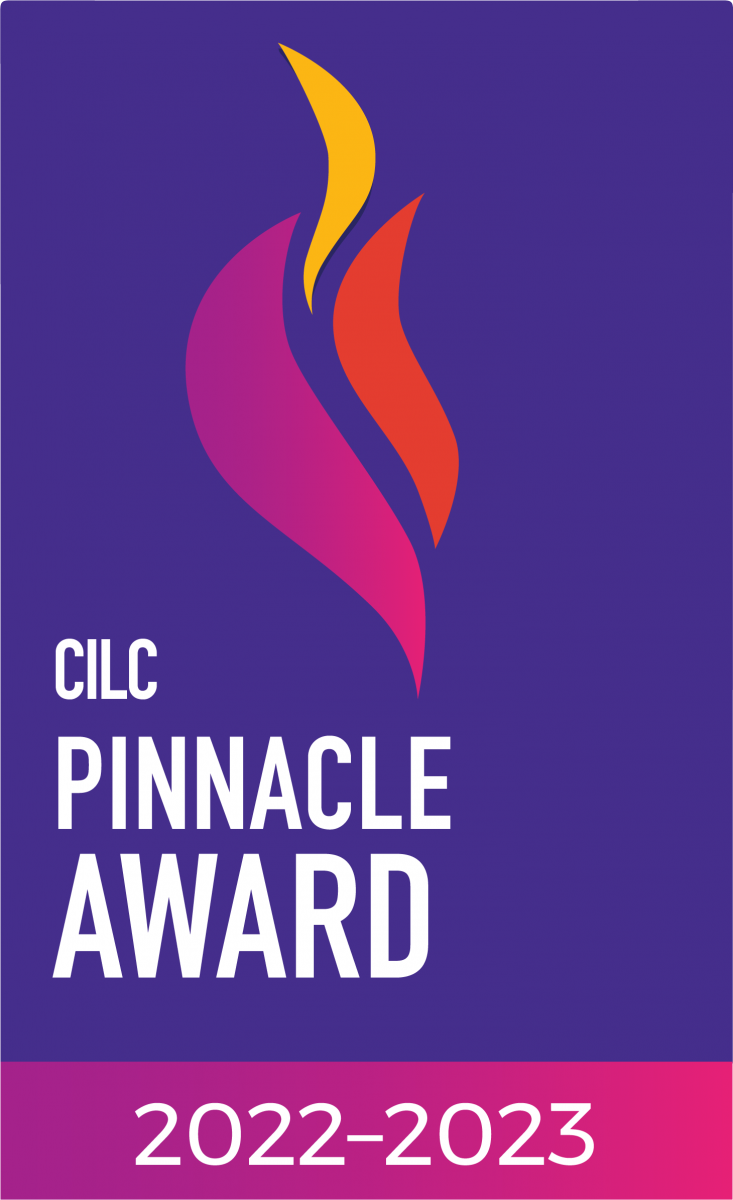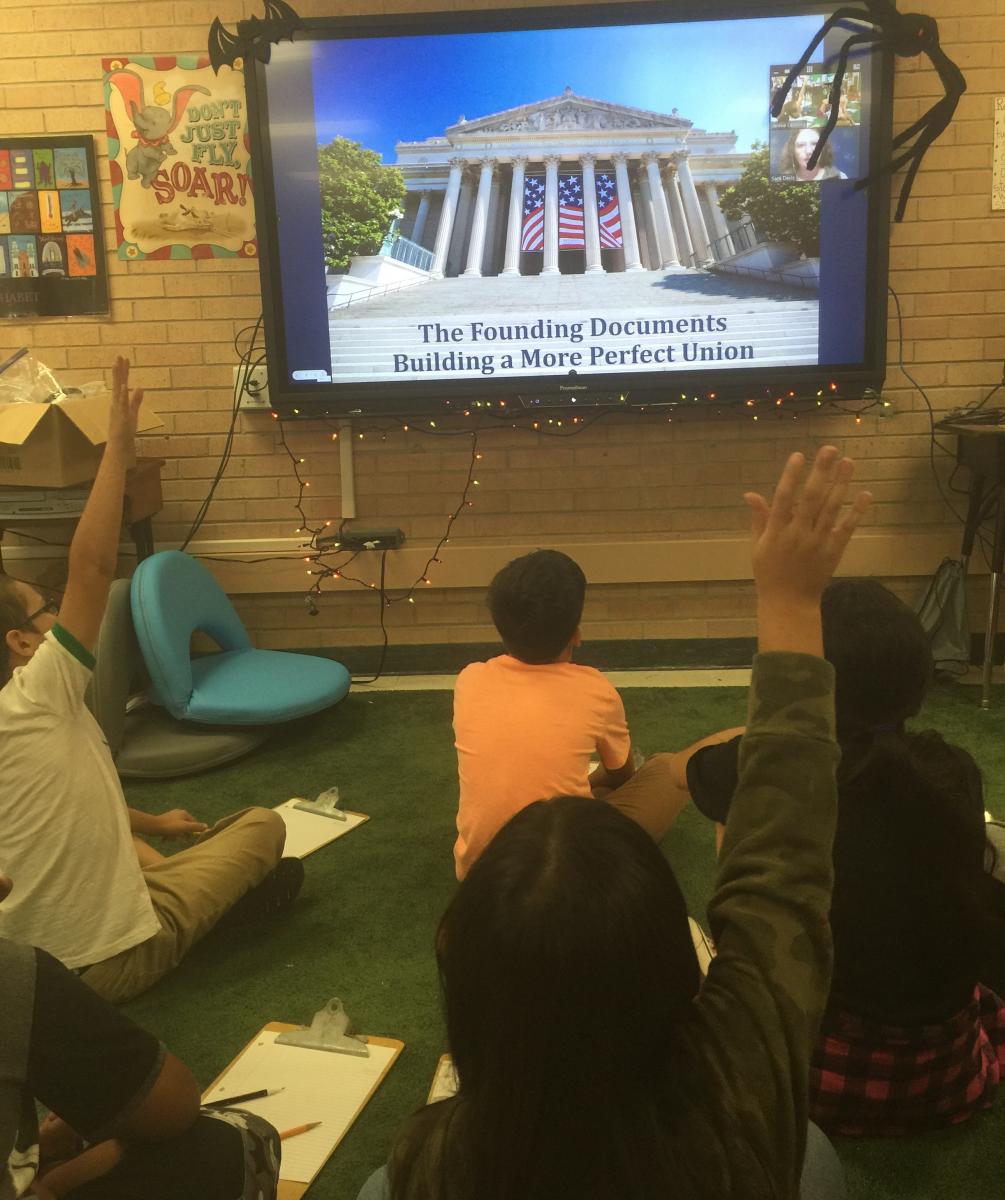
Distance Learning Team Wins Pinnacle Award for Third Consecutive Year
By Angela Tudico | National Archives News
WASHINGTON, August 31, 2023 — For the third year in a row, the National Archives Distance Learning team won the Center for Interactive Learning & Collaboration (CILC) Pinnacle Award.
 CILC is a nonprofit organization that facilitates distance learning programs between educators and museums, national parks, zoos, and other organizations. Each year the Pinnacle Award is given to the CILC partners who receive the highest evaluations from educators who participated in their distance learning programs the previous year.
CILC is a nonprofit organization that facilitates distance learning programs between educators and museums, national parks, zoos, and other organizations. Each year the Pinnacle Award is given to the CILC partners who receive the highest evaluations from educators who participated in their distance learning programs the previous year.
Before winning CILC’s Pinnacle Award for three consecutive years, the National Archives also won the award for the 2017–18 school year and earned honorable mentions for the following two school years.
“I am incredibly proud of this team and their dedication to educating students about the records of the National Archives year after year,” said Museum Programs Division Supervisor Nick Coddington. “To win this award three years in a row is a remarkable achievement and one that is very well-deserved.”
Over the past year, the Distance Learning team facilitated more than 150 virtual programs that reached nearly 8,000 K–12 students and over 600 teachers across 30 states.
The programs connect with students and schools across the United States in places that can be miles from the nearest National Archives location, like Arizona, Utah, Wisconsin, and South Dakota.
“The real value of distance learning is access,” said Education Specialist Sara Lyons Davis. “We’re able to connect with different classrooms and students who may not necessarily be able to come to the National Archives in person, either because of distance or because it’s expensive to schedule field trips and buses. Distance Learning really allows us to connect with communities that we may not be able to connect with in other ways.”
The team’s virtual programs focus on the holdings of the National Archives and on civic education and engagement. Programs, such as “Decoding the Declaration” and “The Bill of Rights in Real Life,” aim to teach students about the founding documents and to explain their relevance to the students’ lives.
“Part of the mission of distance learning is that everyone who comes to a program, regardless of where they live across the country, should leave being able to see themselves and their communities in our records and to feel like the National Archives belongs to them,” said Davis.
Educators leave each program with a guide that includes activities, teaching suggestions, and links to relevant records in DocsTeach.
CILC will host a Community of Learning series this fall. The Distance Learning team will present the virtual program they developed for Civics for All of US, “A Treaty is a Promise: Exploring Treaties with Native Nations through Documents from the National Archives,” on November 2. More information about the program and registration is available via CILC.
